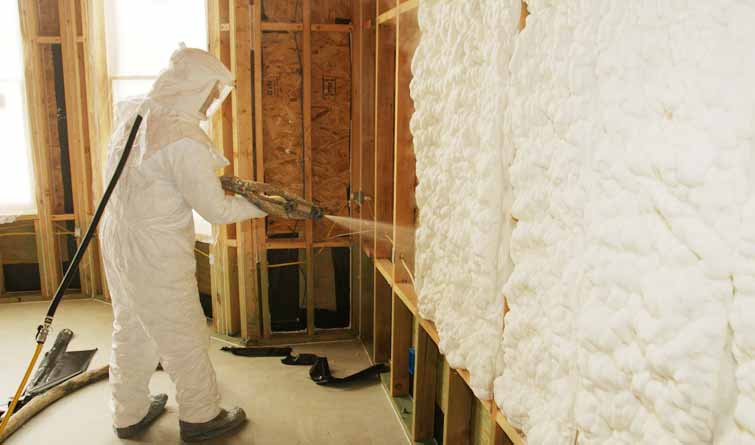With the rise of energy costs, homeowners are constantly looking for effective ways to minimize energy consumption and slash bills. One method that has gained popularity in recent years is the installation of spray foam insulation. But how can this solution help reduce your energy bills? Let’s delve into its workings and benefits.
Firstly, it helps to understand what spray foam insulation is. It is a type of insulation that expands upon application, filling even the tiniest gaps, creating an airtight seal around your home. This barrier not only keeps the cold air out during winter but also keeps your home cool during summer.
Now, onto the question, how does spray foam insulation reduce your energy bills? The answer lies in its energy efficiency. Here are four ways in which spray foam insulation makes your home energy-efficient and lowers your bills.
Ways Spray Foam Insulation Makes Your House More Energy Efficient
There are four main ways in which spray foam insulation helps lower your energy bills.
Limits Air Leakage
Traditional insulation materials often leave tiny gaps and cracks uncovered. These spots become the escape routes for conditioned air, making your HVAC systems work harder and longer, thereby consuming more energy. Spray foam expands and fills these gaps, minimizing air leakage, and lowering energy consumption by up to 40%. If you are looking for the best spray foam insulation solution, then Vega Bond is the right choice for you. For residential and industrial insulation, Vega Bond offers high-quality spray foam products, offering options for a variety of residential or commercial properties, with an emphasis on energy efficiency and thermal insulation.
Provides Superior Insulation
Spray foam has a higher R-value (the measure of insulation’s resistance to heat flow) than other insulation materials. This means it does an excellent job in keeping conditioned air in and external temperatures out, providing a comfortable atmosphere at a fraction of energy cost.
Minimizes Heat Transfer
During winter, heat from your home can escape to the colder outdoors, and vice versa in summer. Spray foam insulation creates a robust barrier and reduces this heat transfer, helping to maintain a comfortable temperature in your home. This limits the time your heating or cooling system has to run, leading to energy savings.
Improves HVAC Efficiency
With spray foam insulation, your HVAC system doesn’t have to work as hard to heat or cool your home. This improvement in efficiency not only reduces energy consumption but also enhances the lifespan of your HVAC system, saving on both energy and maintenance costs.
Additionally, spray foam insulation also attenuates outdoor noise and improves indoor air quality by reducing the infiltration of pollutants and allergens. Hence, the benefits extend beyond energy savings, enhancing the overall comfort and health within your home.
While the upfront cost of spray foam insulation is higher than other insulation methods, the long-term savings on energy bills make it a worthwhile investment. According to Energy Star, homeowners can save an average of 15% on heating and cooling costs by air sealing their homes and adding insulation.
In conclusion, spray foam insulation is a highly efficient way to reduce your energy bills. You’ll not only save money but also contribute to a smaller carbon footprint by improving your home’s energy efficiency. A professional insulation installer can advise you on the right product for your needs and guide you through the installation process.

